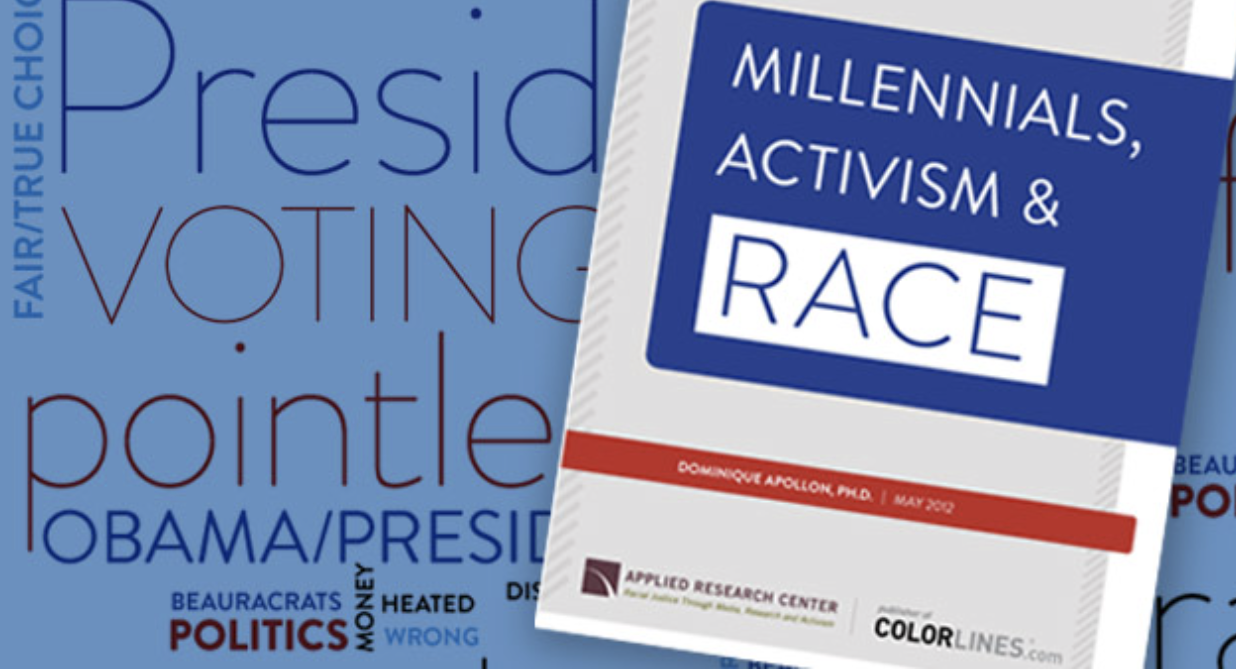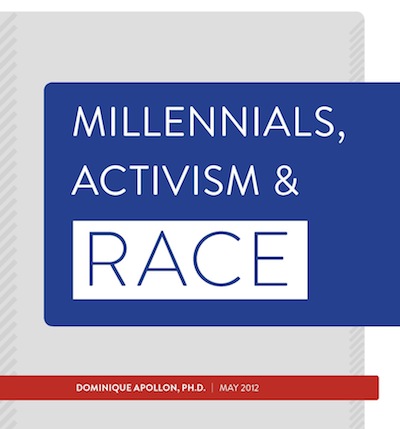The “Millennial Generation” (born post-1980, ages 18-30) is the largest, most racially and ethnically diverse generation the US has ever known.
Over the last two years, the Applied Research Center has conducted focus groups around the U.S. with millennials of varying races/enthnicities to find out more about their attitudes and perspective. It is clear that race continues to play a role in their lives. What inspires them to engage in social justice work? ARC has produced two reports available for download below - they offer key findings and recommendations, illustrated with infographics, and accompanied by videos. A few select quotes are also available here:
MILLENNIALS IN THEIR OWN WORDS.
For more information contact
[email protected]. For press inquiries, contact
[email protected].
| NEW REPORT!! Millennials, Activism and Race
KEY RECOMMENDATIONS on the political engagement of young people: - Develop and use frames and narratives that offer clear alternatives to individualism and competition, emphasizing positive values such as unity, equity, inclusion, linked fate and shared prosperity.
Create opportunities for young people of color to share personal stories that highlight human impacts and connections to lived experiences.
Encourage conversation, learning and strategizing that explicitly address systemic racism, and create tools that equip young people with the skills to use an intersectional analysis to challenge multiple, interconnected systems of oppression.
Bridge dissimilar organizations and communities so that young people can build multiracial, intergenerational power, emphasizing connections from Occupations to those from other kinds of social justice work.
PRESS RELEASE here. |
|
| DON'T CALL THEM "POST-RACIAL”
Millennials’ Attitudes on Race, Racism, and Key Systems in Our Society KEY FINDINGS include: - Race matters – a large majority of young people assert that race is still a significant factor within various systems, such as criminal justice, education, employment, and immigration.
- Millennials are not monolithic – there are differences in how young people of different races and ethnicities view the extent and continued significance of racism in various systems of society.
- Racism is often defined in interpersonal terms – though most young people of color have little problem labeling an entire system as racist.
PRESS RELEASE here. |
Additionally Colorlines.com, ARC’s daily news site, offers essays, reporting and videos on millennials, Occupy protesters, and their connection to racial justice work. ARC PRESIDENT & COLORLINES PUBLISHER RINKU SEN: “With recent Census data showing the majority of new births to be those of people of color, it’s not surprising that far from being ‘post-racial,’ millennials see that we have to talk about race to achieve social justice."
ARC RESEARCH DIRECTOR DOMINIQUE APOLLON: "From a researcher's perspective, it was a dream to hear from some of the most engaged progressive young people in the country. And to provide a forum for them to express themselves freely, in ways that we hope readers of all ages and races will appreciate."
COLORLINES.COM EDITORIAL DIRECTOR KAI WRIGHT:
"Young people are going to lead the country out of today's mess. We need to truly understand how racism shows up in their lives, rather than fantasize about them being post-racial."


